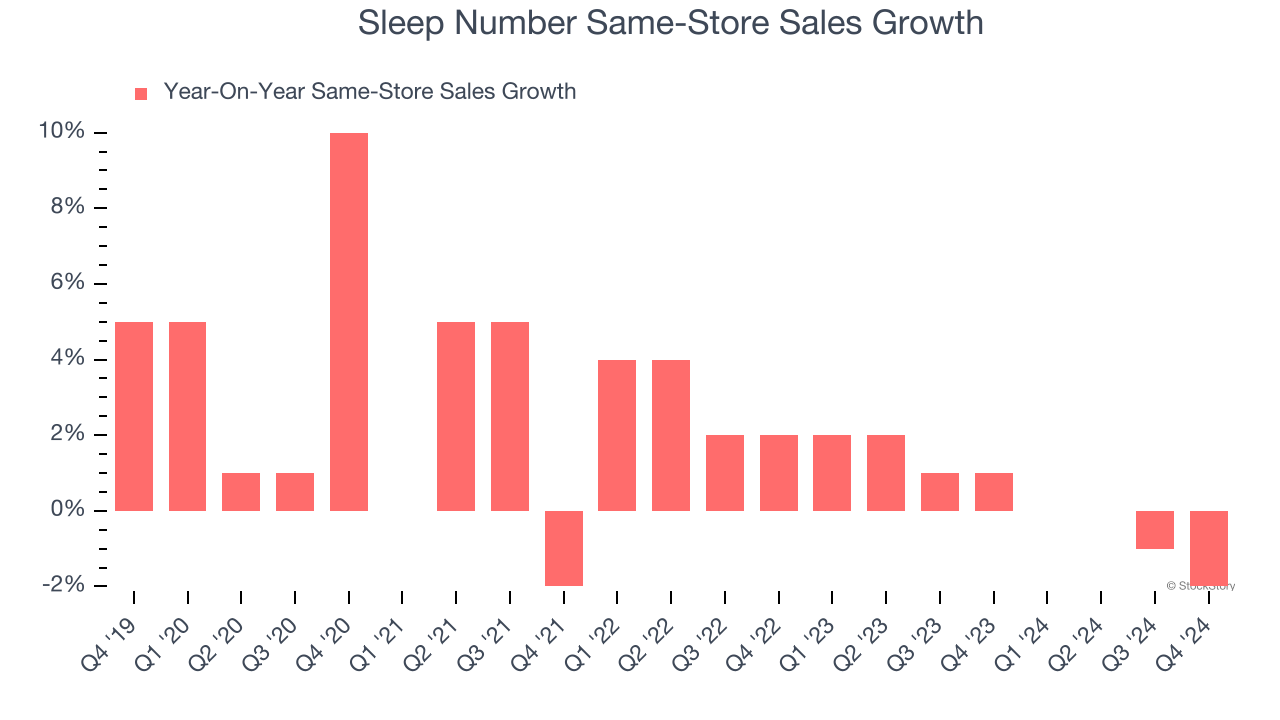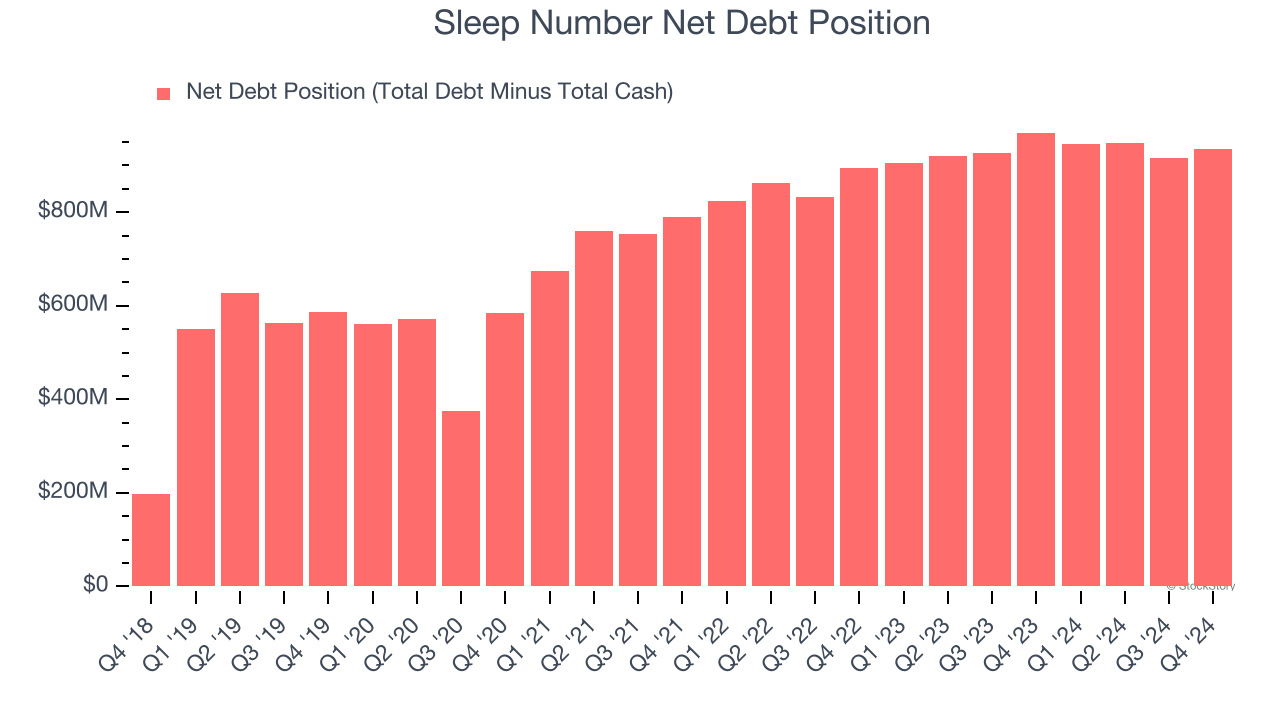
What a brutal six months it’s been for Sleep Number. The stock has dropped 69.3% and now trades at $4.71, rattling many shareholders. This was partly driven by its softer quarterly results and might have investors contemplating their next move.
Is now the time to buy Sleep Number, or should you be careful about including it in your portfolio? Get the full breakdown from our expert analysts, it’s free.
Despite the more favorable entry price, we don't have much confidence in Sleep Number. Here are three reasons why we avoid SNBR and a stock we'd rather own.
Why Is Sleep Number Not Exciting?
Known for mattresses that can be adjusted with regards to firmness, Sleep Number (NASDAQ: SNBR) manufactures and sells its own brand of bedding products such as mattresses, bed frames, and pillows.
1. Flat Same-Store Sales Indicate Weak Demand
Same-store sales is an industry measure of whether revenue is growing at existing stores, and it is driven by customer visits (often called traffic) and the average spending per customer (ticket).
Sleep Number’s demand within its existing locations has barely increased over the last two years as its same-store sales were flat.

2. Revenue Projections Show Stormy Skies Ahead
Forecasted revenues by Wall Street analysts signal a company’s potential. Predictions may not always be accurate, but accelerating growth typically boosts valuation multiples and stock prices while slowing growth does the opposite.
Over the next 12 months, sell-side analysts expect Sleep Number’s revenue to drop by 6.7%, a decrease from its flat sales for the past five years. This projection is underwhelming and indicates its products will face some demand challenges.
3. High Debt Levels Increase Risk
Debt is a tool that can boost company returns but presents risks if used irresponsibly. As long-term investors, we aim to avoid companies taking excessive advantage of this instrument because it could lead to insolvency.
Sleep Number’s $936.1 million of debt exceeds the $1.95 million of cash on its balance sheet. Furthermore, its 8× net-debt-to-EBITDA ratio (based on its EBITDA of $119.6 million over the last 12 months) shows the company is overleveraged.

At this level of debt, incremental borrowing becomes increasingly expensive and credit agencies could downgrade the company’s rating if profitability falls. Sleep Number could also be backed into a corner if the market turns unexpectedly – a situation we seek to avoid as investors in high-quality companies.
We hope Sleep Number can improve its balance sheet and remain cautious until it increases its profitability or pays down its debt.
Final Judgment
Sleep Number isn’t a terrible business, but it doesn’t pass our bar. After the recent drawdown, the stock trades at 11.1× forward price-to-earnings (or $4.71 per share). This valuation is reasonable, but the company’s shakier fundamentals present too much downside risk. We're pretty confident there are more exciting stocks to buy at the moment. We’d suggest looking at the most entrenched endpoint security platform on the market.
Stocks We Would Buy Instead of Sleep Number
Donald Trump’s victory in the 2024 U.S. Presidential Election sent major indices to all-time highs, but stocks have retraced as investors debate the health of the economy and the potential impact of tariffs.
While this leaves much uncertainty around 2025, a few companies are poised for long-term gains regardless of the political or macroeconomic climate, like our Top 5 Growth Stocks for this month. This is a curated list of our High Quality stocks that have generated a market-beating return of 175% over the last five years.
Stocks that made our list in 2019 include now familiar names such as Nvidia (+2,183% between December 2019 and December 2024) as well as under-the-radar businesses like Comfort Systems (+751% five-year return). Find your next big winner with StockStory today for free.






